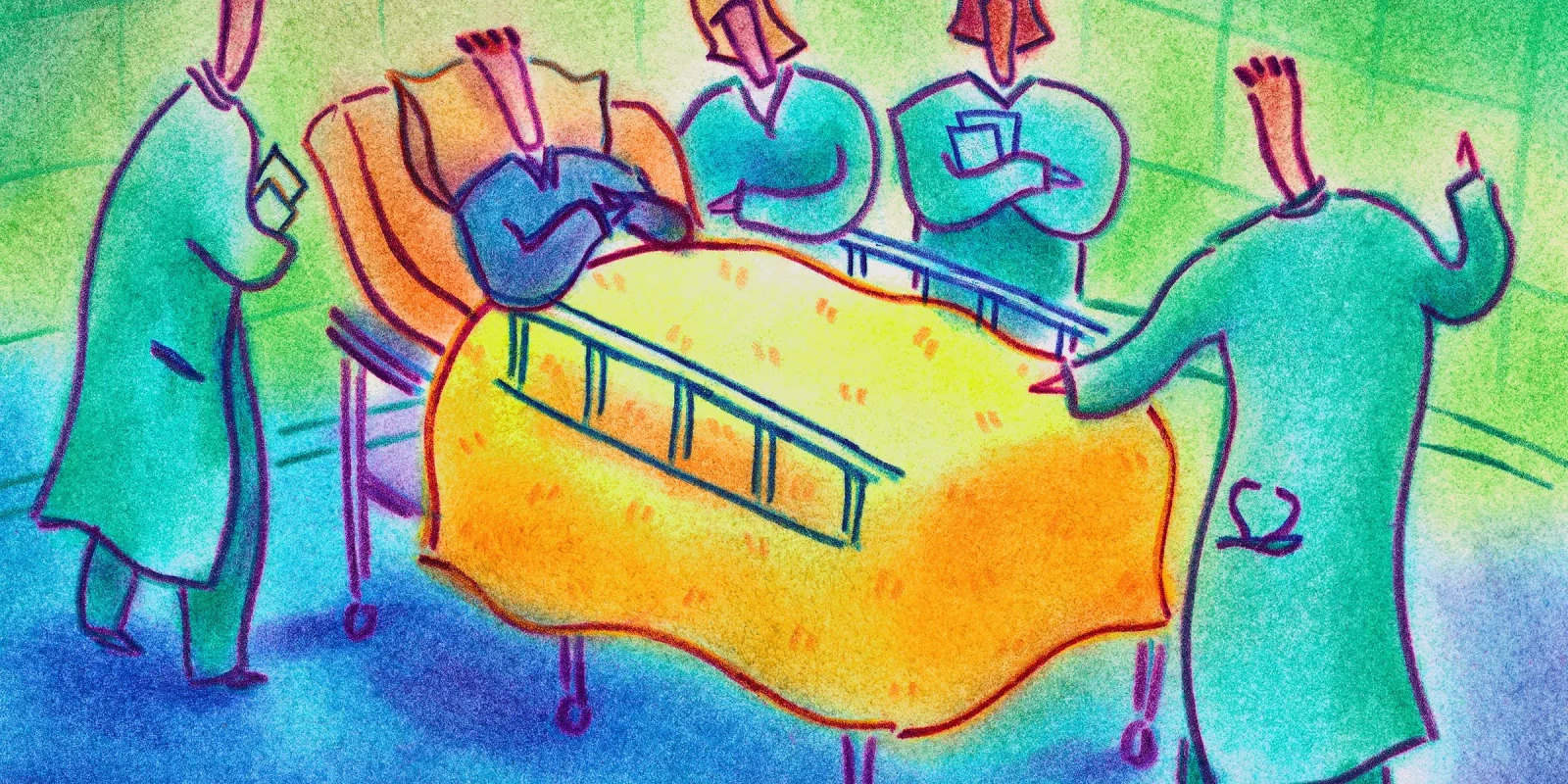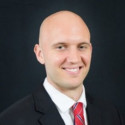
Dear Future Attending,
We haven't yet worked together but we soon will, and I know afterwards I will be asked to offer you feedback. Yet, as a new intern, attempting to provide helpful insight to someone so much more capable seems impossible … and to offer criticism feels potentially insubordinate. Thus such feedback rarely feels beneficial.
However, after a few months on the job, I've come to realize that there are a few helpful hints my fellow interns and I may be able to offer—precisely because we are so new to the strange milieu of the hospital. In fact, we are acutely aware of those simple practices that allow for enjoyable working and learning environments that may at times go unnoticed by our superiors.
It is to this end that I offer—in the form of one of those helpful mnemonics that I know we in medical education so value—the "Four N's of the Excellent Attending," from the vantage point of your future intern.
- First is "Name." When we first meet as a team, introduce yourself and ask our names. I know what you're thinking: "I always do this at the beginning of a rotation." But you might be surprised how often this basic step is overlooked; how frequently, on a busy first Monday together after morning report runs long, we jump right into rounds; how commonly a new medical, nursing, or pharmacy student joins us without introduction and follows the crowd wordlessly and uncomfortably for hours. You are important and established; we all know your name—but you may forget how easy it is to feel anonymous as the intern or student, and how simply asking our name affirms our dignity. We don't need icebreakers, and we don't even expect you to remember our names right away, but please ask. You wouldn't believe how much it inspires us to do good work when we feel valued as individual people, rather than interchangeable functionaries.
- Second is "Nurses." When we are rounding or evaluating patients, engage the nurses. Ask what they think is going on with the patient, what they are concerned about, their thoughts on next steps. In medical education we are inundated with lectures extolling the importance of interdisciplinary practice. Teamwork improves patient outcomes, increases worker satisfaction, and ensures respect in a medical environment in which physicians have historically sequestered authority. (1,2) But an emphasis on teamwork dissipates into mere lip service when the only ones who speak on rounds are the doctors and doctors-in-training. As an intern, you quickly realize how valuable a source of wisdom nurses can be—but if we never see our superiors embody listening, we forego a crucial learning opportunity. The importance of interprofessional care is more "caught" than "taught," and if we are to learn to truly respect others and value their clinical insights, there is hardly a more powerful example than seeing you exhibit it daily.
- Third is "Not medicine." When we work together, find out one thing about us that has absolutely nothing to do with our clinical duties. We are always asked where we went to medical school and what our career plans are, but rarely are we asked what matters to us outside of the hospital. So please, ask us anything: our favorite movie, our spirit animal, or what we're reading currently. Just as being asked our name motivates us to work for an attending who values us as individuals, when we are asked about ourselves, we feel more human and less like a one-dimensional workhorse. Especially as an intern, it's easy to conflate who we are as people with what we do at work. We spend so much time in the hospital that we quickly forget those important parts of our identity that remain latent during a 14-hour workday. And when all conversations with attendings focus on medicine, it reinforces the notion that that our identity lies primarily in the work realm. By asking about who we are outside of medicine, you both humanize us and convey the importance of remembering that we are more than our jobs.
- Fourth is "Remember that we 'Notice.' " We are trying so hard to develop as independent thinkers, but as new and diffident doctors, we are incredibly perceptive of every word you say and action you perform. When you walk away in the middle of our presentation to examine the patient, we notice. When you greet the janitorial staff by name, we notice. Please know that you are not only teaching us medicine, you are showing a vulnerable and impressionable group what type of provider to become. The "hidden curriculum" (3) is potent and pervasive—and you are the main purveyor of this tacit pedagogy. You have a profound role in shaping the future generation of practitioners; please don't take this task lightly.
If this preemptive feedback appears misguided or insubordinate, I apologize. But the truth is, if you don't invest in habits of respect and humility, the only form of "feedback" will be in an echo chamber of embittered trainees who unfortunately are all too inclined toward unhelpful discourse.
Fortunately, none of these "Four N's" require much time or energy, which we recognize is at a premium. We hear a lot about systems-level interventions to enact substantive change in medicine today, which are important to be sure. But as the intern learns quickly, the art of medicine is in the countless daily, seemingly banal words we choose and the actions we perform—which we learn from you.
It is easy to forget what the experience feels like the first time you encounter it; I already feel myself forgetting what it felt like to be the medical student—and it was mere months ago. The art is long but our memories short. Please don't forget what you aspired toward as an intern.
Sincerely,
Another Future Attending
References
- Epstein, NE. Multidisciplinary in-hospital teams improve patient outcomes: A review. Surg Neurol Int 2014; 5(Suppl 7): S295–S303.
- Schottenfeld L, Petersen D, Peikes D, Ricciardi R, Burak H, McNellis R, Genevro J. Creating Patient-Centered Team-Based Primary Care. 2016. AHRQ Pub. No. 16-0002-EF. Rockville, MD: Agency for Healthcare Research and Quality.
- Coulehan J. Viewpoint: Today's professionalism: engaging the mind but not the heart. Acad Med. 2005;80(10):892-8.
Ben Frush is a first-year resident in Internal Medicine and Pediatrics at Monroe Carell Jr. Children's Hospital at Vanderbilt in Nashville, TN. He is a former fellow at the Theology, Medicine, and Culture Initiative at Duke Divinity School, where he earned his master's in Christian Studies. He is interested in medical ethics, especially in the moral formation process that occurs during medical training. He has no conflicts of interest to disclose.







